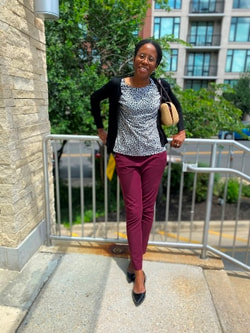The newness of the sub-field of sociology of development means it shares some things in common with an interdisciplinary field such as science and technology studies, namely, dispersed resources, disputes about the canonical literature, and questions about disciplinary boundaries, utility, and longevity. As an interdisciplinary scholar working in sociology of development, I want to stress that the comprehensive exam and candidacy exam are important to help you build confidence in yourself as a scholar. Yet those important benchmarks, together with your transcript of courses, are ultimately a negligible part of a search committee’s hiring decision. Instead, to get a position, you need to build the necessary social network during your graduate studies.
I argue for the importance of strategically utilizing your comprehensive and candidacy exams to build your social network while you are a student completing your doctorate. This strategy is important to prepare to go on the market for a variety of jobs, but it is especially important if you are interested in a tenure-track sociology of development position in higher education. Sociology of development is a field in the making and there are few institutional resources; it is more likely that as you cobble together your scholarly-identity, sociology, interdisciplinary studies and global studies departments are likewise cobbling together a few tenure-track lines to offer new positions[1]. As a development sociologist, you will be unlikely to find a position in a sociology department. You should keep this disciplinary diversity in mind as you prepare to write your comprehensive and candidacy exams.
Many graduate handbooks will say that your comprehensive exam should demonstrate that "you have an emerging understanding of the breadth and diversity of the field … and are starting to find your place in it…. are able to accurately represent … compare, synthesize, apply, and critique an array of… perspectives and ideas"(Rensselaer STS Graduate Handbook 2016). What, however, does this mean? The obvious answer is that you must showcase your ability to explain the depth and breadth of the field, and its knowledge gaps, through well-written arguments. This ability is the mainstay of any social scientist. However, this is not all the comprehensive exam represents.
The work done by a comprehensive exam (defending your knowledge of the field), and subsequent candidacy exam (defending your proposed research) is three fold: internal to your department, it displays your knowledge and ability; internal to your person, it develops your self-confidence and expertise; external to your department, it creates official certification of your expertise. The last two pieces of work are the most important, because they help you to build your social network while you are a student working on your doctorate.
By building your social network, I am talking about the folks that you plan to be in scholarly conversation with in the early part of your academic career. Their publications should grace your reference lists for your exams. You should be seeking them out to meet for coffee at the Rural Sociology, ISA, and ASA annual meetings and the bi-annual Sociology of Development meeting. You also should be applying to present on panels they have organized at various meetings. The idea is that the scholars who will be reviewing your application among 60-200 other applicants should have some vague idea of who you are and what you work on before your application ever crosses their desk.
For this to happen, your comprehensive exam and candidacy exam should have a mix of literature to include: (1) old & frequently cited, (2) recent, relevant & cited, and (3) new & highly relevant. You should keep in mind that dead people cannot hire you and neither can recent graduates. Therefore, focus the majority of your exams on recent, relevant and cited literature. Additionally, your reading list for your exams should include a mix of scholars inside and outside the heartland discipline of sociology as befits your interpretation of development sociology's canonical literature. Again, please bear in mind that these are not just the scholars with the most novel or foundational ideas, but ones who have grouped around particular scholarly ideas where you feel you can soon make a contribution: very soon, face to face. I am not advocating complete cynicism when choosing your readings for your exams; instead, I am advocating what a mentor has told me recently: "think sociologically" about your career. Your comprehensive and candidacy exams are about more than the life of the mind.
[1] In his 2014 article in Inside Higher Ed, Jaschik suggests that there is a market for sociologists specializing in interdisciplinary studies and global studies. As a development sociologist, you can fit either role. However, the United States Bureau of Labor Statistics projects that the market for sociologists, overall, is shrinking by 1%. Therefore, jobs will be hard to come by for sociologists across all industry, but especially the already hyper competitive industry of higher education.

 RSS Feed
RSS Feed